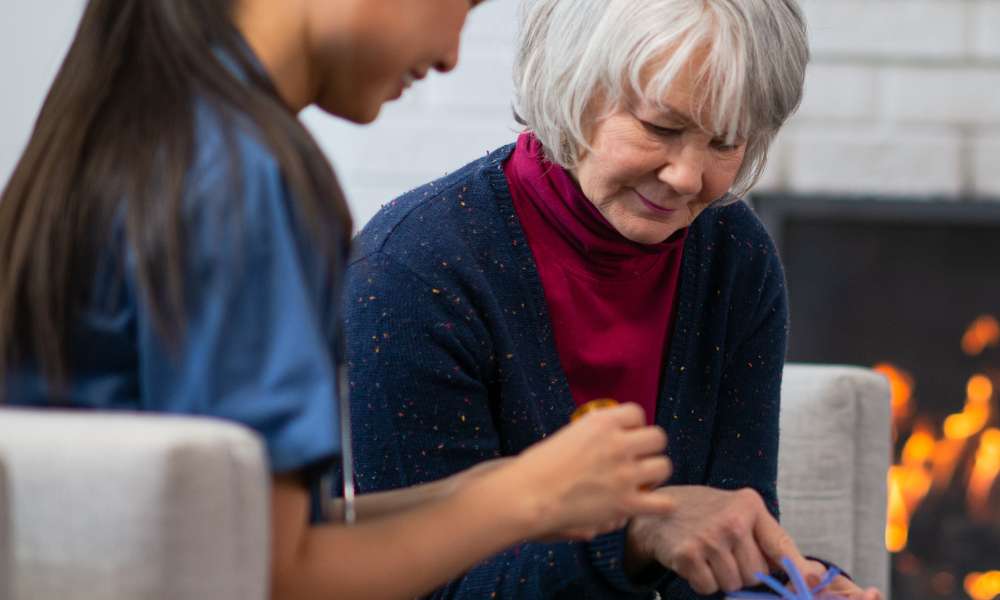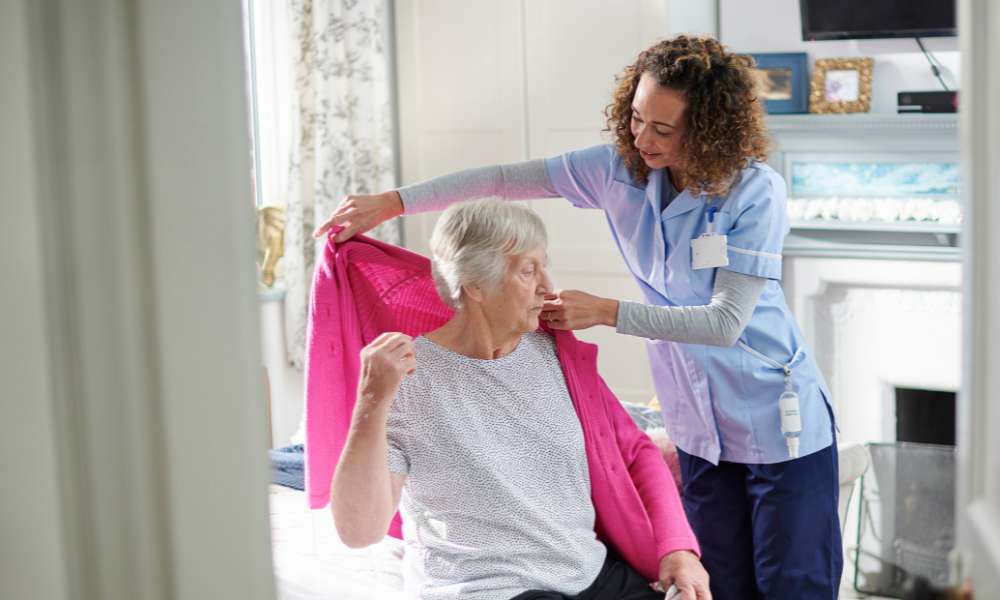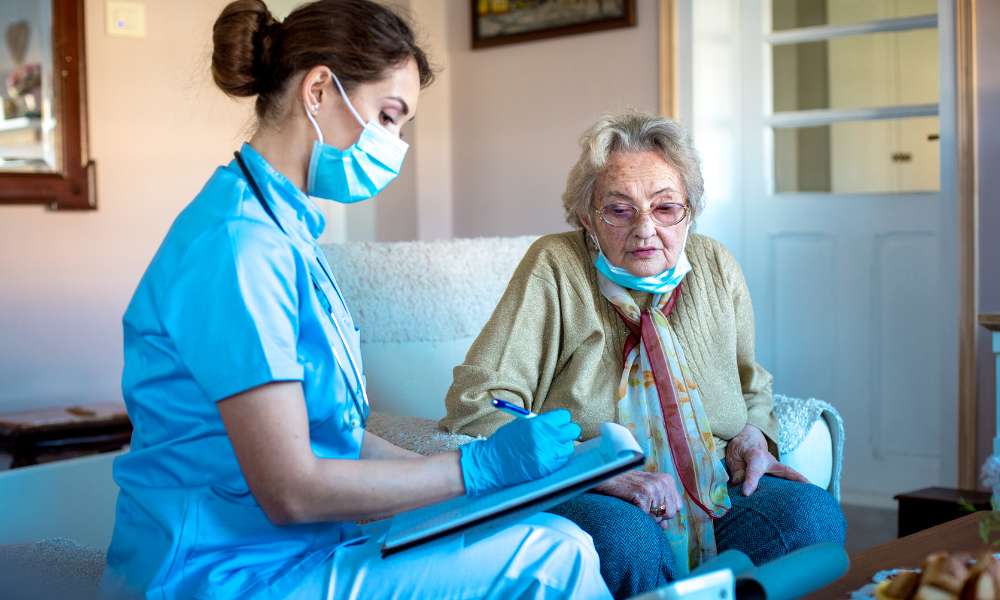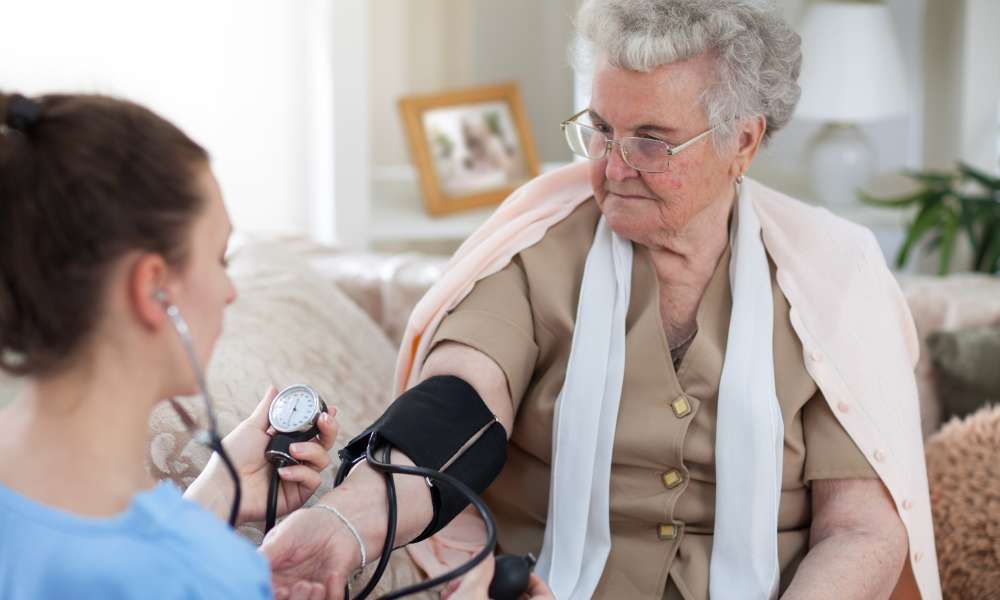When it pertains to delivering support for individuals in need, the terms “caregiver” and “PCA” (Personal Care Assistant) are frequently employed interchangeably. Nevertheless, it is crucial to recognize the distinct variances between these two roles. In this article, we will delve into these disparities, shedding light on the unique responsibilities and qualifications associated with each position, particularly within the context of I&Y Seniorcare.
What is a Caregiver?
A caregiver is a trained professional who offers various types of assistance and support to individuals with physical, emotional, or cognitive needs. Caregivers can work in a variety of settings, including in-home care, nursing homes, assisted living facilities, or hospitals. Here are some key aspects of what it means to be a caregiver:
- Personal Care: Caregivers provide personal care services such as bathing, dressing, toileting, and grooming. They assist with activities of daily living (ADLs) to ensure the comfort and well-being of their clients.
- Medication Management: Caregivers may be responsible for administering medications, keeping track of prescriptions, and ensuring that the individual is taking the right doses at the right times.
- Companionship: Beyond physical care, caregivers often offer emotional support and companionship to their clients. They engage in conversations, provide a friendly presence, and help combat feelings of loneliness or isolation.
- Household Tasks: Caregivers may also perform light housekeeping tasks, meal preparation, and grocery shopping to ensure that the individual’s living environment is safe and comfortable.
- Training and Certification: Caregivers typically receive formal training and certification to develop the skills necessary for their role. Certification requirements may vary by state and employer.
What is a PCA (Personal Care Assistant)?
A PCA, or Personal Care Assistant, is a specific type of caregiver who specializes in providing support to individuals with disabilities or chronic conditions. PCAs are often hired to help individuals with tasks that they may have difficulty performing on their own due to physical or cognitive limitations. Here are the key aspects of a PCA’s role:
- Specialized Care: PCAs focus on assisting individuals with disabilities or chronic conditions in managing their unique challenges. This may include helping with mobility, transferring, and using assistive devices.
- Tailored Care Plans: PCAs work closely with clients and their healthcare providers to create personalized care plans that address specific needs and goals.
- Limited Medical Tasks: While PCAs may assist with activities like taking vital signs or reminding individuals to take medications, they typically do not perform complex medical procedures that require formal nursing training.
- Training and Certification: Similar to caregivers, PCAs also receive training and certification, but their training often includes specialized coursework related to disability support and adaptive techniques.
Key Differences
- Scope of Care: The primary difference between a caregiver and a PCA lies in the scope of care they provide. Caregivers offer a broader range of services, including personal care, companionship, and household tasks, whereas PCAs specialize in assisting individuals with disabilities or chronic conditions.
- Specialization: PCAs receive specialized training to work with specific populations, while caregivers offer more general caregiving services.
- Medical Tasks: Caregivers may handle medication management and other basic healthcare tasks, but they do not typically perform complex medical procedures. PCAs focus on assisting with activities related to the individual’s disability or chronic condition.
- Certification Requirements: Both caregivers and PCAs often require certification, but the specific requirements and coursework may vary depending on the state and employer.
Conclusion
While the terms “caregiver” and “PCA” are often used interchangeably, they represent distinct roles in the field of healthcare and support services. Caregivers offer a wide range of services to individuals in need, including personal care and companionship, whereas PCAs specialize in providing personalized support to those with disabilities or chronic conditions. Understanding these differences is crucial for individuals seeking care or considering a career in the caregiving field, as it allows them to make informed decisions and ensure that they receive or provide the most appropriate care for their specific needs.



















In conclusion, SARMs supply benefits like muscle development and fat loss, making them a beautiful possibility for these seeking to improve their physique. Nonetheless, you will want to understand and handle the potential unwanted effects to make sure protected and efficient use. When it involves SARMs cycles and submit cycle therapy, it’s crucial to follow proper tips and work with an skilled professional when unsure. Whereas nearly all of respondents felt it was unlikely or most unlikely they would cease AAS use in the next 5 years, this may be defined by worries across the effects of AAS cessation. Our findings confirmed the impact of AAS cessation on physique composition or physical performance and restoration of testosterone levels or fertility was of concern to respondents. Individuals also reported challenges in acquiring PCT; in fact, accessing AAS was deemed a lot easier, which led some to extend or indefinitely proceed AAS use. Methyltrienolone or metribolone, is a drug that's commonly used by bodybuilders and athletes to increase aggressiveness and improve efficiency. It is a highly potent and volatile drug that can encourage the growth of lean muscle mass when taken in excessive dosages.This article describes Methyltrienolone Steroid Usage, Dosage, Benefits, Unwanted Effects... If your testosterone levels reasonably dropped, then you definitely don’t have to use Nolvadex or Clomid. As A Outcome Of there are some other natural substitutes available in the market that undoubtedly can boost your testosterone levels by roughly 10%. Rebirth PCT is a type of supplements that accommodates numerous natural testosterone-boosting compounds. Different frequent adverse effects of Clomiphene Citrate, when used for PCT by bodybuilders and athletes, might embody belly swelling, belly pain, nausea, mood swings, headache and breast tenderness. It is essential to think about that people' responses can differ, and not everyone using clomid will expertise these opposed reactions. Stacked with a average dose of testosterone, features of 10-15lbs of high quality measurement is an affordable objective, with new customers capable of aim for 25lbs. Whether Or Not you’re utilizing NPP or Deca, both varieties exhibit the same chemical construction and properties – the only distinction is the ester connected to the Nandrolone hormone to regulate its release velocity after injecting. Nandrolone won’t convert to DHT, which means it’s a well-liked steroid by those wanting to keep away from DHT-related unwanted aspect effects like hair loss. Like most AAS, it has become much less widespread to see Nandrolone getting used medically, especially within the Usa. The result's incredible muscle hardness and a lean, vascular, shredded look that makes Trenbolone so valued in recomp cycles and contest preparation. Much Less of this stress hormone can make it simpler to burn fats without dropping your hard-earned muscle tissue. Testosterone has robust androgenic exercise, and because of this Check Enanthate can come with androgenic unwanted aspect effects, a sort of being hair loss or male pattern baldness. If you have hair loss within the household, this steroid can pace up the onset of male pattern baldness. Guys not genetically predisposed to baldness are unlikely to experience this facet impact. Typically, it is strongly recommended to begin PCT as soon as exogenous hormones have cleared out from the system sufficiently. During PCT, there are specific dos and don'ts that should be followed for optimum results. It is important to stick to beneficial dosages and follow particular protocols as suggested by healthcare professionals or skilled people within the field. Additionally, sustaining a wholesome life-style with proper nutrition, hydration, sleep, and train is essential during this period. So earlier than starting, take into consideration how and what you'll eat, how often, how much, and how your coaching will work. Ideally, you’re already eating and coaching well anyway, so you’ll have to tweak it to get your desired outcomes. If your diet or training just isn't on level, you’re simply throwing cash down the drain. Even although Equipoise is useful for bulking, it shines when it comes to slicing cycles as a result of it promotes the retention of lean muscle tissue while on a calorie-deficient food regimen. This is made from all pure elements and it does not have any negative unwanted side effects. For the first two weeks, 40mg is taken per day and for the following two weeks, 20mg per day is taken. Your physique will get the required assist during this transition and you will save yourself from unnecessary testosterone deficiency-related dangers or issues. During this phase, you'll experience symptoms of testosterone deficiency together with mood swings, decrease libido, poor power ranges, and the like. This guide is here to offer balanced data to help people make accountable and educated selections in regards to the Check and Tren cycle, with all its potential advantages and very actual dangers in thoughts. Making PCT a important part of every steroid cycle is a habit you must get into, beginning out of your first cycle as a newbie. These and different PCT drugs35 include their potential side effects, so all the time do your analysis earlier than deciding which ones to make use of. You should already have a stable grasp on the types of fats and carbs to eat, guaranteeing high quality wholesome fat are included. Since so many compounds can harm levels of cholesterol, this is notably essential in a cycle the place you’ll want to maintain your omega-3 fatty acid consumption, with oily fish being a great source. Halotestin ought to be run for now not than three weeks, with 30mg every day recommended as the maximum. Take Tren at 300mg weekly, Anavar at 50mg day by day, and don’t overlook your testosterone prop at 300mg weekly. After all, it’s an enormous step to make that call to inject your self with a substance. Nonetheless, when to start hcg after cycle is often a query, with typical suggestions ranging from 500 – 1000 IU each other day during PCT. It’s an acceptable hcg for pct dosage, particularly this hcg dosage for pct. Those with naturally oily pores and skin can find the oil increases, but nearly another steroid you stack with Deca will doubtless be the acne-causing offender rather than Deca itself. PCT should begin two weeks after the top of the cycle, and Clomid should be used for 3 weeks at 50mg daily or up to 100mg day by day in case your cycle is heavier. In the 2-week hole before PCT, maintain using Arimidex after which keep on it throughout your Clomid cycle and an additional week afterward. Don’t suppose you possibly can bounce into a normal PCT cycle after using Nandrolone, and every thing will return to regular in a couple of weeks. Nandrolone (Deca and NPP) will go away metabolites behind that will stay in your system for months. Exactly how long you would keep suppressed is a matter of debate – some say up to 18 months, however I’d say round half that time (most importantly – each guy is different!). Timing is especially necessary because SARMs, while extra selective in targeting muscle and bone tissue, can nonetheless suppress pure testosterone manufacturing to varying levels. Failing to initiate PCT on the proper second can result in prolonged periods of hormonal imbalance, growing the danger of side effects corresponding to fatigue, loss of muscle mass, and even mood modifications. Starting PCT immediately after completing a SARM cycle helps the physique kickstart its pure testosterone production before important hormonal disruptions happen. References: Pro Bodybuilders Steroid Cycles (Jbhnews.Com)
MAXLabs.co is devoted to providing secure merchandise that don’t have harmful unwanted effects. Before planning a steroid cycle, it is suggested to get your bloodwork checked, it will permit you to plan the cycle correctly and keep away from any compounds that will improve undesirable health dangers. Most of those compounds will have to be administered intramuscularly, due to this fact it's advised to discover methods to correctly do that before you purchase injectable steroids in our store. Please contact us if you need advice concerning the proper administration of injectable steroids. They have been used medically to treat an intensive variety of medical situations up to now, however are mostly used illegally by athletes who want to enhance efficiency in a brief time period. Secure your buy of premium anabolic steroids conveniently on-line in the USA, guaranteeing safety and high quality. Our on-line pharmacy stands out as a trusted supplier, catering to those looking for to maintain vitality and muscle energy. Each Deca and Dbol have been used often by golden-era bodybuilders, and each are nonetheless at the prime of the list of well-liked steroids at present. Being an oral steroid, you’d count on Anavar to be as liver poisonous as Dbol, however in reality, it’s pretty delicate in this regard – however may cause extra stress to the kidneys. Anavar will dry you out and provide you with some unimaginable vascularity and muscle hardness, fairly the other of a Dianabol physique. Superior Dbol customers usually do a short, sharp cycle utilizing different short estered compounds for the most dramatic and rapid results. Trenbolone 100 is an injectable steroid based on trenbolone suspension however with the fast-acting ester, Acetate, in an oil-based answer. Trenbolone Acetate promotes muscle acquire, strength indicators, fat-burning, in addition to creating beautiful muscle definition over the course of the slicing cycle. It is mostly used in bodybuilding and by athlete’s that compete in combating sports activities. Ausroids is the premier Australian based mostly supplier for anabolic steroids. Ausroids companies all the big cities in australia together with perth, adelaide, melbourne, sydney, brisbane and tasmania. We will also be pleased to offer you recommendation and reply any questions you might have regarding Roids USA steroids for sale on our website. If you're unable to discover a explicit product or need assistance to purchase steroids on-line, please contact us and we will do every little thing potential to assist with your request. We are all conscious of the importance of steroids in achieving a desirable physique. The dietary directions that you have to follow after buying from an injectable steroids store in USA are fairly easy. This is more of a bonus outcome with Dianabol as it's not a true fat-burning steroid. Dianabol can burn fats and build muscle if only maintenance-level energy are consumed. If you may be eating in a calorie surplus for bulking, you likely won’t discover a lot or any fats loss with this steroid. This is a steroid that has been used for many years, so tons of of thousands of customers have shared their results and experiences one way or one other. Increased energy will power your muscle positive aspects, and users will not often complain about the energy enhancement that Dianabol produces. If you have current ldl cholesterol issues, you should keep away from using Dianabol utterly. However injuries are a reality of life in energy and efficiency based mostly sport. In basic, injectable liquid steroids are thought of secure when used as directed by a doctor. Nevertheless, you will need to comply with your doctor’s instructions carefully to ensure that you get one of the best results and keep away from any potential unwanted facet effects. Trenbolone Acetate may be taken solo and combined with other steroids. A extra visible result is noticed when utilizing it with Anavar or Winstrol. In this case, the dosage should be decreased by 50% for each drug to increase dry mass after a cycle. You just must fill out a type, submit it, and wait on your order to be processed. Although it isn't a potent bulking steroid, it's extremely regarded for its slicing capabilities, primarily due to its capacity to retain lean muscle tissue via elevated nitrogen retention. It lets you see the entire catalog, learn labels, place orders, and get them delivered to your alternative location. In phrases of payment, you should buy anabolic steroids online in the Usa at eversteroids.com using PayPal, American Specific, MasterCard, or Visa. No steroid is taken into account safe to make use of for efficiency enhancement, and the dangers to your health are well known. With Dianabol, the dangers are on the serious finish, as they relate to your liver, ldl cholesterol, and general heart well being. These risks are reduced by limiting a Dianabol cycle to 6 weeks and avoiding high doses past 50mg per day. By taking the assistance of these steroids, athletes can work on their energy building, grow muscular tissues, and may simply achieve their fitness objectives. We ship to Ontario, British Columbia, Quebec, Alberta, Saskatchewan and different Canadian Provinces. By binding to particular receptors in the physique, they promote muscular hypertrophy or progress, endurance, recovery speed after physical exertion, power, and speed-strength indicators. We’ve become your clenbuterol one-stop store thanks to our aggressive pricing, quick transport, and industry-leading customer support. We’ve turn into your one-stop store due to our aggressive pricing, fast shipping, and industry-leading customer support. When it comes to disposal you should first get the injections wrapped in biodegradable packaging after which throw it in a trash bin. DHT then binds to the androgen receptors contained in the cytoplasm of the target cells and forms a DHT-receptor complex. This product is available solely by way of our 503A Compounding Pharmacy, guaranteeing personalised care and precision in every order. To successfully administer an injection, you will want a syringe readily available at your native pharmacy and not using a prescription. Earn loyalty points with every purchase and redeem them to assert reductions, free CrazyBulk products, exclusive merch and other rewards. one hundred pc natural, protected, & authorized steroid alternate options to Clenbuterol, HGH, Anadrol, and extra. References: Does Steroids Make Your Penis Smaller (Jbhnews.Com)